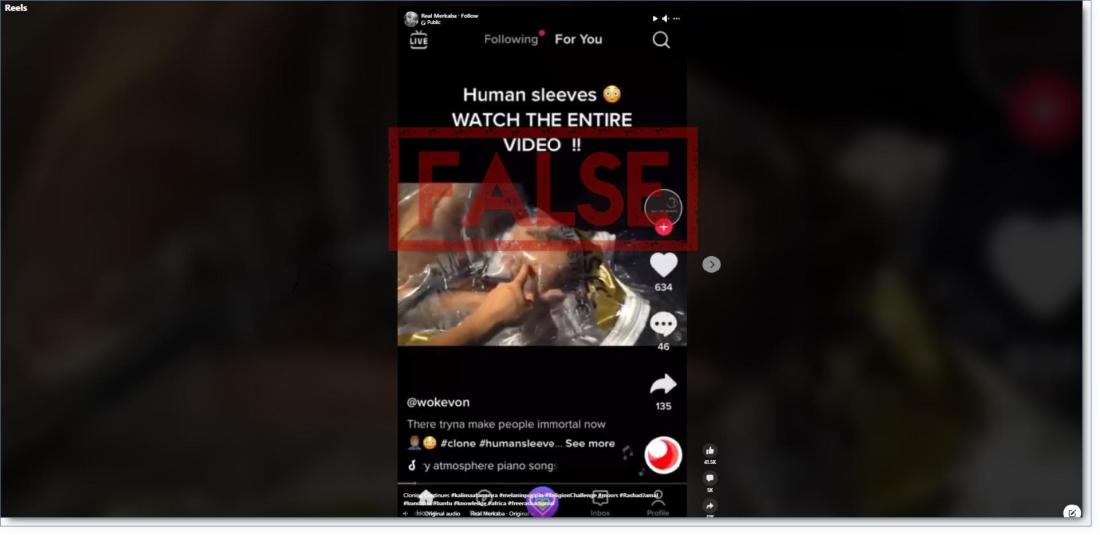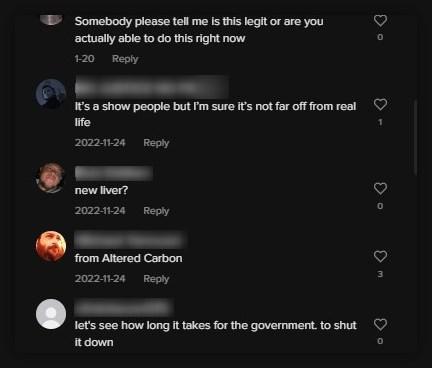
Video does not show real ‘human sleeves’ – it’s an old ad for a Netflix show
- This article is more than three years old.
- Published on February 20, 2023 at 09:30
- 2 min read
- By Tendai DUBE, AFP South Africa
“Human sleeves”, reads the text on a TikTok video published on Facebook Reels. Another line claims: “There tryna make people immortal now (sic).”
The caption for the reel, which has been shared more than 31,000 times, reads: “Cloning continues”.

Reactions to similar posts (here and here) on TikTok were mixed; some users in the comments knew that it was simply an advertisement for Netflix, while others believed the technology was real.

Some of the first results for a keyword search of “human sleeves” on Google show that the claims were debunked more than a year ago in December 2021 by fact-checking organisations Reuters and Snopes.
The results also found articles from January 2018 (here and here) that reported on a “disturbing booth” on display at that year’s Consumer Electronics Show (CES) in Las Vegas for a company called “PsychaSec”.
At the time, an article in the advertising trade publication Adweek explained that Netflix used the event to promote one of its shows.
PsychaSec was a fictional company that promised immortality by allowing people to transfer their consciousness and memories into a new body, or “human sleeve”.
The booth featured two artificial bodies, “Adam and Eve”, and the promoters, dressed all in white, were said to have stayed in character as PsychaSec employees when addressing CES 2018 attendees.

“Sounds pretty trippy, right? Unfortunately, PsychaSec isn’t real. But even the CIA would’ve had a hard time getting the booth hosts to admit it,” wrote tech reporter Sean Burch.
Burch also wrote that he had spotted a Netflix logo on the side of the booth that nobody was talking about.
It turned out that Netflix was promoting the series Altered Carbon, which launched the following month -- adapted from a futuristic novel by Richard K. Morgan.

The series was cancelled in 2020 after running for two seasons.
Copyright © AFP 2017-2026. Any commercial use of this content requires a subscription. Click here to find out more.
Is there content that you would like AFP to fact-check? Get in touch.
Contact us
